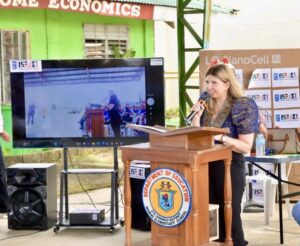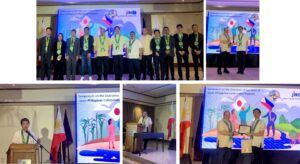
The United States Peace Corps recently organized a five-day workshop in Iloilo City that trained students from the Philippine Science High School (PSHS) System to plan and implement sustainable, science-driven climate solutions in their schools and communities.
During the workshop titled “Building Student Volunteer Leaders for Climate Change Initiatives,” 36 students from PSHS campuses nationwide trained on conceptualizing, planning, and prototyping climate change solutions. They are expected to implement these projects following consultations with their local communities, exemplifying volunteerism and the role youth can play in the fight against climate change.
Funded by the United States Agency for International Development (USAID) and co-facilitated by climate change expert-facilitators from SEED4COM, the training is part of the U.S. Peace Corps’ broader commitment to addressing global climate challenges by collaborating with host country partners and integrating climate change adaptation in its program and training activities.
“We are partnering with the PSHS System to tap the potential of STEM education when applied to climate action,” Peace Corps Country Director Marguerite Roy said. “I am excited to see how the participating students will build on this training, bring their projects to life, and influence others to become agents of change.”
Student participants, together with 16 PSHS System faculty members and eight Peace Corps volunteers with their work partners, also attended discussions and field visits to local climate resilience projects such as the Leganes Integrated Katunggan EcoPark, Climate Field School, and Orchard Valley Farm to deepen their knowledge on climate change, biodiversity conservation, disaster risk reduction, and volunteerism.
“This program provides a structured framework for advocacy, which will be incorporated in our climate action plan in the PSHS System,” PSHS System Executive Director Ronnalee Orteza said.
The U.S. Peace Corps-sponsored training supports Project Planet Lemniscate, a PSHS System initiative that uses project-based learning and design thinking in its campuses to empower students to develop innovative solutions for climate change.
“The involvement of our youth is crucial. We cannot afford to wait until it’s too late,” Executive Director Orteza added.
The workshop also served as a platform for PSHS System students to collaborate with experts and fellow volunteers, receive feedback on their project proposals, and refine their project prototypes.


